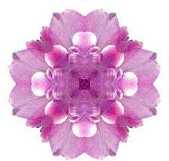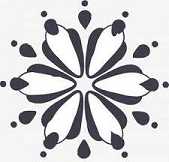果报:当下的天堂与涅槃 The Fruit : Heaven And Nibbana In The
发布时间:2022-08-25 09:00:49作者:楞伽经讲什么1-3-3. THE FRUIT : HEAVEN AND NIBBANA IN THE PRESENT果报:当下的天堂与涅槃
When talking about fruits and results, we tend to think about heaven and Nibbana. We tend to think that someone who does good, must go to heaven and someone who does bad, falls into hell. You shouldn't think of that kind of heaven and hell in the future, but you should know hell in the present first. Heaven in the sky, the same; leave it for now, have a look at heaven in the present first. Where is heaven in the present ? It's inside us ! It is in the individual, that is, it is in the person who acts, speaks and thinks good. But when we act, speak and think bad, we'll meet and associate with bad people, this is what hell is about. Please, Just simply reflect - we all probably see it already, for example that those who do bad and wrong things, who cheat and rob, must be hunted down and avenged. They'll have to be caught by the police, they have to keep in hiding and suffer continuously. This shows clearly that they have fallen in hell. As for us, who haven't done anything wrong, we don't have to worry about anything, we don't have. to go in hiding, even when we meet a policeman, we feel safe, which is the same as being in heaven. Maybe we have thought like this already but I want to emphasize it so that we understand heaven and Nibbana in the present clearly. When we understand this matter properly, happiness, development and prosperity will arise by themselves, in us and our society.

一谈到果报,我们一般都会想到天堂和涅槃,并且认为做好事的人一定会上天堂,而做坏事的就会下地狱。你们不应该去想那种未来的地狱,而应该要先知道当下的地狱;天上的天堂也一样先别管它,先瞧瞧当下的天堂。当下的天堂在哪儿呢?就在我们里面!在每一个人里面,也就是在身、口、意能行善的人里面。反过来,当我们身、口、意造恶的时候,我们会遇到或结交一些坏人,而这就是所谓的地狱了。请回想一下这些景象,我们可能都看见过了,比如说,那些做坏事或做错事的人以及偷拐抢骗的人,他们一定会被逮捕或报复,也一定会被警察追捕,他们必须不断躲藏乃至受苦,这样就清楚地显示出他们已经掉入地狱了。至于我们,我们没做什么坏事,也就不须担心什么了,遇到警察,我们不须躲藏,反而觉得很安全,这样就等于在天堂了。或许你们和我一样也是这么想的,但是我要再强调它,以便大家能更清楚地了解当下的天堂和涅槃。当我们正确地了解这些,幸福、发展和繁荣就会在我们内在及社会中自然生起。
Our duties are connected with sick people, who are suffering, so the thing we should remember is, to have a heart of kindness and understand the real condition of the world and life, according to the teaching of the Buddha that says : SABBE SATTA..... , All beings are friends in suffering, birth, old age, sickness and death. If we recollect like this continuously, our mind will be clean and gentle. This is the verse for happiness, development and prosperity in life, and for working and earning a livilihood together in human society. When we think about the suffering in ourselves and how to practice with it, we should see the suffering in others and how to behave towards them, also. Namely, to be friends in suffering. If we can do that, we will encounter happiness.
我们的责任是和受苦的病人有关,所以我们必须记得的是:要怀着一颗慈爱的心以及要了解这个世界及生命的真实本质。佛陀教导说:“Sabbe Satta…”,意思是说所有众生都是在生、老、病、死中受苦难的朋友。假若我们这样不断地观想,我们的心就会清净与柔和。这是个人生命中幸福、发展与繁荣以及人类社会中共同工作与生活的美丽诗篇。当我们想到自己的苦以及我们是如何经历它们,就应该要了解别人的苦并知道该如何对待他们,意即同病成知己、患难见真情。如果我们能那么做,处处体会别人的苦,就能够得到幸福。
For doctors or nurses, I suggest to take doctor Jivaka as a model, as a hero. If we can do this, the world will have happiness and peace, and this is the fruit that we should grab hold of and have faith in, or establish a framework from, for spiritual life. The Buddha used to teach that being a doctor is better than being wealthy. This is something to feel joyful and proud about because being a doctor helps many people to survive. Thinking in terms of results, it is invaluable, it can't be expressed in money, not even millions of baht. The thing which is the heart of advancing towards this confidence, is to diligently develop awareness and always make the mind clean, bright and peaceful.
就你们医生或护士而言,我建议你们把齐瓦哥医生当做自己的模范和英雄。如果我们做到那样,这个世界就能够快乐与和平,而这也才是我们必须抓取的的真正果实,以及必须要有信心并依之建立一个心灵生活的架构。佛陀曾教导:当医生比当有钱人好,这是真正值得高兴和骄傲的事,因为当医生可以帮助许多人存活下来。就所谓的果报来说,这是无价的!是不能用金钱来衡量的!就算是几百万元也不能相提并论。深化这种信念的核心要务就是精进培养觉性以及时时保持心地清净、光明及安祥。
Heaven and hell exist in us, it's not like the scriptures say that heaven and Nibbana are at this and that level. That's the texts, but I don't attest to it. But I do affirm the old saying that heaven is in the heart, hell is in the mind and so is Nibbana.
天堂和地狱就在我们自己里面,而不是如经典上所说的:天堂与涅槃在这一层或那一层天。没错!那是经典上的文字记载,不过我无法证实它。但是,我绝对肯定一句古谚:「天堂在心中,地狱在心中,涅槃也一样。」
When talking about right view in practising the duties of doctors and nurses, I'd like to take the opportunity to talk a bit about our life because it's not easy to get a chance to talk here. Why talk about life? Because I've talked at many places, like the Rama and Siriraja hospital and discovered that some doctors suffer while carrying out their duties, they do it because they have to, not out of symphathy or with their minds at ease. Those people have asked me 'How can we do it feeling at ease, how can we practice our duties without suffering?'. I told them : 'Actually, our minds don't have suffering, it is still in itself and indifferent'. This is what the Buddha calls Nibbana : the mind that is equanimous. The word equanimity means to set one's heart at ease, and work, following one's duties. The mind that is neutral, is comparable to a weight, an anchor or the brakes of a car, that hold back our state of mind to be balanced, all the time. Not letting it incline or flow with the stream of happy and unhappy feelings. And this kind of mind is the mind that is beyond happiness and suffering. it's not stuck in goodness or badness. This is called neutrality or Nibbana. So Nibbana exists at people's minds !
既然谈到医生和护士履行职务时的正确观念,我愿意再藉此机会谈谈我们的生命,因为能来在这儿和各位谈话机会很难得。为何要谈生命呢?因为我在许多地方都谈过,比如拉玛和斯里拉迦医院,而且我发现一些医生在履行职务时感觉很痛苦,他们是因为不得不做才去做的,而不是出于同情或一种自在无碍的心。他们曾问我:「我们怎样才能在工作中感到自在无碍呢?又怎样才能在履行职务时不感到痛苦呢?」我告诉他们:「事实上,我们的心本来没有苦,它还是它自己本来那个样子并没有什么改变或不同。」这才是佛陀所谓的涅槃——亦即寂静的心。所谓的“寂静”是指心能自在无碍而且尽责地工作,这种中道的心可比喻为砝码、船锚或车子的煞车,能够时时保持我们的心在平衡的状态,不会让心随着高兴和不高兴的感觉而流转,这样的心是超越苦乐的,不会泥执于善恶好坏,而称之为中道或涅槃,所以涅槃是存在于人们心中!



